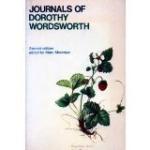|
This section contains 15,119 words (approx. 51 pages at 300 words per page) |

|
SOURCE: Grob, Alan. “William and Dorothy: A Case Study in the Hermeneutics of Disparagement.” ELH 65, no. 1 (spring 1998): 187-221.
In the following essay, Grob purports that, at the end of the twentieth century, “adversarial tactics of feminism and the New Historicism” have distorted Wordsworth scholarship.
Of the convulsive changes that have worked their way through the field of Romantic—and especially Wordsworthian—studies during the postmodernity of the past thirty years, none seems more truly ominous than many critics' virtually wholesale adoption in the past decade of those adversarial presuppositions that now seem to shape and govern almost all undertakings of any real influence in the field. While the term “adversarial” has become a critical commonplace, its meaning self-evident, its pertinence for my purposes derives from a casual remark made by Marjorie Levinson in her plainly seminal Wordsworth's Great Period Poems, her observation that adoption by the New Historicism...
|
This section contains 15,119 words (approx. 51 pages at 300 words per page) |

|


